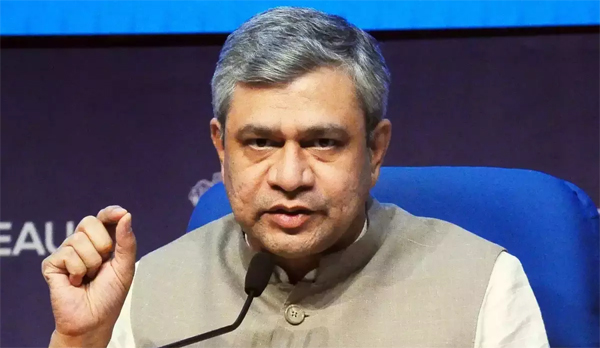NEW DELHI, Oct 15: The country’s first electronic chip manufacturing plant is expected to be in place within a year, according to Union Telecom and IT Minister Aswhini Vaishnaw.
The government has initially earmarked USD 10 billion incentive for setting up a semiconductor manufacturing ecosystem in the country including a wafer fabrication plant. The wafer fabrication plants are the first building block of physical chips that are used in all high-tech electronic products.
“We are focussing on some niche area where we can take global leadership. Telecom and EV (electric vehicles) have emerged as a big segment for semiconductors. If we focus on developing and manufacturing chips used in these segments then we can become global leaders in these two segments,” Vaishnaw told PTI in an interview.
He said the work is being done with a focus on these emerging areas.
“We should have some good success in the coming months. It will be fab (wafer fabrication), design, manufacturing, complete (ecosystem),” Vaishnaw said.
When asked if it would be in a year, the minister said, “No. We will see success very soon.”
He said that with the success of US-based storage chip maker Micron’s investment in India, the entire world has become very comfortable about India’s capability.
Memory chip maker Micron started building a semiconductor assembly plant at Sanand in Gujarat last month. The company in June announced setting up a semiconductor assembly and test plant in Gujarat entailing a total investment of USD 2.75 billion (around Rs 22,540 crore).
Micron will invest up to USD 825 million in setting up the plant in two phases and the rest of the investment will come from the Centre and the state government.
The minister said that component suppliers of Micron are also in an advanced stage of identifying land in collaboration with the state government.
“As per information shared with me, five companies (Micron partners) have come in. Land identification process is on. One of their (Micron’s) biggest ecosystem partners, which makes substrate, is already in the land allocation process,” Vaishnaw said.
The government has already set a timeline to commercially roll out the first indigenous chipsets by 2023-24 under the Digital India RISC -V programme.
IIT Madras and the Centre for Development of Advance Computing (CDAC) have developed two microprocessors named Shakti (32-bit) and Vega (64-bit) respectively using Open Source Architecture under the aegis of the Microprocessor Development Programme of the Ministry of Electronics and IT.
Vaishnaw said that the government is working on making some 4-5 components where India can become a global hub to meet not only domestic requirements but also export to the rest of the world. (PTI)


